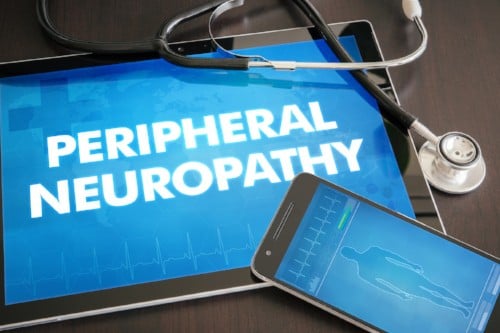Neurontin (gabapentin)

MOST COMMON BRAND NAME: Neurontin

Gabapentin Uses…
What Conditions Does Gabapentin Treat?
Neurontin (gabapentin) belongs to the class of drugs known as anticonvulsants or antiepileptics. This medication’s primary use is to control or prevent seizures, yet Physicians commonly use it “off label” to treat a variety of nerve pain conditions. These include diabetic neuropathy, herpes zoster, and shingles. Drs also occasionally prescribe Neurontin to treat fibromyalgia and other pain syndromes. It is sometimes used in conjunction with other drugs to treat chronic and acute pain.
What Conditions can be treated with Neurontin (gabapentin) capsules?
- Epilepsy and other seizure disorders
- Neuropathic pain
- Nerve pain associated with herpes
- Acute postoperative pain
- Alcoholism
- Fibromyalgia and other complex pain syndromes
- Diabetic neuropathy
- Essential Tremor
- Menopausal symptoms
- Extreme localized discomfort in the calves upon rest.
Neurontin (gabapentin) side effects:
Pins and Needles Feeling inside a Cast
Common side effects include: fatigue, tiredness, drowsiness, blurred or double vision, unusual eye movements, and shaking (tremors). If these effects persist or become worse talk to your pharmacist or doctor immediately.
Before prescribing Neurontin your doctor will determine if the potential side effects outweigh the possible benefits. Most people taking Neurontin (gabapentin) do not experience severe side effects.
Some patients are prescribed Neurontin for psychological conditions such as bipolar disorder. In a small number of patients this may cause increased depression or other mood disturbances, which may contribute to suicidal thoughts or actions. Tell your doctor immediately if you or a loved one notices any sudden changes in mood or behavior.
A very small percentage of people taking Neurontin may experience swelling of the hands, feet, ankles, or other extremity locations. Shallow or labored breathing may also occur. These are potentially life threatening reactions and medical help should be sought immediately.
In very rare cases patients may have a severe allergic reaction to Neurontin. Symptoms include a full-body rash, fever, swollen lymph nodes, and a swollen tongue and / or throat. Difficulty breathing may occur. If any of these occur seek emergency medical attention immediately.
This is not a complete list of all known side effects. If you experience effects other than those listed above consult your doctor or pharmacist immediately.
In the United States, contact the Food and Drug Administration (FDA) at (800) FDA-1088 to report any adverse effects. You can also report online at www.fda.gov/medwatch.
In Canada, you can report adverse effects to Health Canada at (866) 234-2345.
Gabapentin High
Drug precautions
If you are allergic to gabapentin or gabapentin enacarbil tell your doctor before taking Neurontin. Also inform your doctor if you have any other drug allergies. This drug may also contain inactive ingredients which can potentially trigger allergic reactions. For a full set of potential reactions talk with your pharmacist.
Certain preexisting conditions must be taken into consideration before starting Neurontin. Tell your doctor if you have a history of psychiatric problems. These include but are not limited to: depression, anxiety, bipolar disorder, other mood disorders, or thoughts of suicide. Also inform your doctor if you have a history of drug / alcohol abuse or dependence. Tell your doctor if you have (or have had) kidney disease or problems breathing before starting Neurontin.
Limit alcohol consumption when taking Neurontin. Dizziness, drowsiness, and blurred vision are relatively common side effects. Alcohol can intensify these effects. Abstain from recreational drug use (including marijuana) while on Neurontin. Don’t drive, operate heavy machinery, or participate in activities which require alertness until you are familiar with its effects.
Adults over the age of 65 may be more prone to the side effects of Neurontin.
This is especially tr
Children under the age of 15 may also be more prone to Neurontin’s side effects. This is especially true of mood and behavior disorders. These can include, but are not limited to: restlessness, difficulty concentrating, and increased hostility.
Make sure your doctor has a full list of your medications and dosages before surgery. This includes prescription and over the counter (OTC) drugs, as well as herbal and nutritional supplements.
Gabapentin, the active ingredient in Neurontin, readily passes into breast milk. Avoid nursing when taking Neurontin. Inform your doctor if you are pregnant or think you may be pregnant. This drug should only be used if absolutely necessary during pregnancy. As with all prescription drugs, your doctor will discuss all potential benefits and risks before starting Neurontin.
Drug Interactions with Gabapentin 300mg
Other drugs may change how Neurontin works, or increase your risk of experiencing adverse effects. Tell your prescribing doctor about all medications you’re currently taking. This includes over the counter (OTC) drugs, as well as nutritional supplements. Do not stop taking or reduce the dosage of any medications you’re currently taking without permission from your doctor. Never start taking a medication without first consulting your doctor.
Let your doctor know if you are currently taking any medications which can induce drowsiness. This includes, but are not limited to the following: benzodiazepines such as Xanax or Ativan, narcotic pain medications, muscle relaxants, antihistamines such as diphenhydramine, and medicinal marijuana. Refrain from using recreational drugs while taking Neurontin or other prescription medicines. Neurontin may interact with statin (cholesterol lowering) drugs, producing potentially severe side effects.
Product labels on the medications you’re taking will tell you which drugs they contain. Carefully read all labeling, especially on cough and cold products. These may contain antihistamines. If you have any further questions consult with your pharmacist.
Neurontin is not the only prescription drug which contains the active ingredient gabapentin. This includes gabapentin enacarbil. Do not combine gabapentin-containing medications.
Gabapentin may interfere with laboratory testing of blood and urine samples. When your doctor orders lab testing, inform her and lab technicians that you’re currently taking Neurontin.
What should I do if I miss a dose of Neurontin?
If you miss a dose of Neurontin (gabapentin), follow these steps:
- Take it as soon as you remember: If it’s not too close to your next scheduled dose, take the missed dose right away.
- Skip if it’s nearly time: If your next dose is approaching, skip the missed one. Don’t double your dose to make up for the missed one.
- Continue your regular schedule: Resume taking Neurontin as prescribed by your healthcare provider.
- Notify your doctor: If you miss multiple doses or have concerns, contact your doctor for guidance.
Consistency in taking Neurontin is essential for its effectiveness. Missing a single dose is usually not a significant issue, but maintaining a regular dosing schedule is important for managing your condition.
Is Neurontin habit-forming or associated with addiction risk?
Neurontin (gabapentin) is generally considered to have a lower risk of habit-forming or addiction potential compared to some other medications. However, it’s essential to use Neurontin as prescribed by your healthcare provider and to follow their instructions closely.
Some individuals may misuse Neurontin to experience its sedative effects, especially when combined with other substances. When used inappropriately or in high doses, it can lead to dependence and withdrawal symptoms if abruptly discontinued.
How long does it typically take for Neurontin to start providing symptom relief?
The time it takes for Neurontin (gabapentin) to provide symptom relief can vary from person to person and depends on the condition being treated. Some individuals may experience relief within a few days to a week, while others may require several weeks of consistent use to notice improvements. It’s essential to follow your healthcare provider’s recommended dosing and be patient, as Neurontin’s effectiveness may take time to fully manifest for your specific condition.


